A young woman travels to the Bavarian Alps in Germany with her father, stepmother and their mute daughter. In the resort town where they are staying, she comes across its dark secrets. A film by Tilman Singer, starring Hunter Schafer, Jan Bluthardt, Márton Csókás, Jessica Henwick, and Dan Stevens.
CUCKOO
Tilman Singer
(2024)
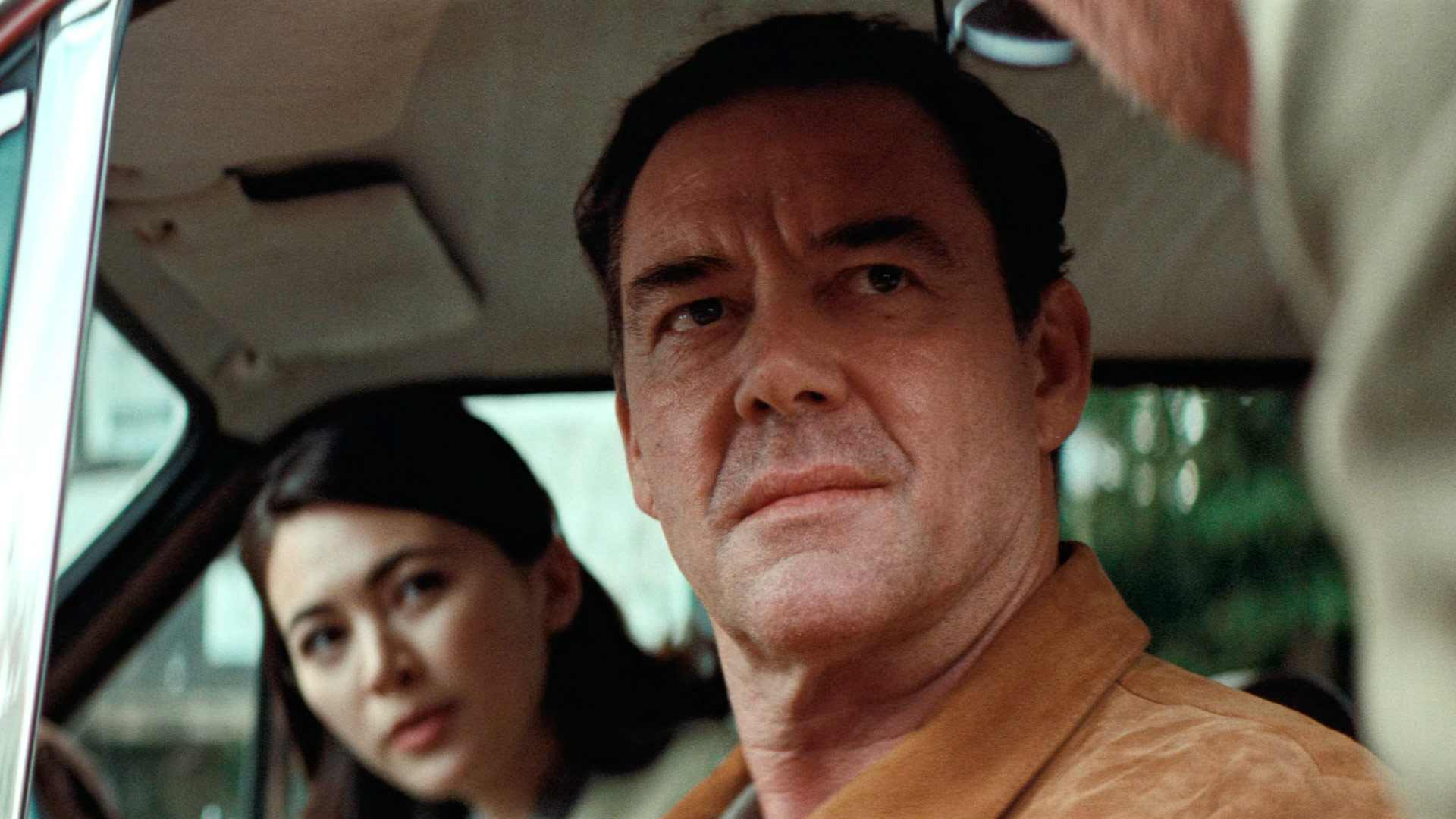
Architect Luis (Márton Csóká), his wife Beth (Jessica Henwick), and their mute daughter Alma (Mila Lieu) relocate to the resort town of Alpschatten in the Bavarian Alps, Germany, to help the owner, Herr König (Dan Stevens), build a new hotel. König warmly welcomes Luis’s family and notes that Luis and Beth spent their honeymoon at his resort nearly eight years ago.
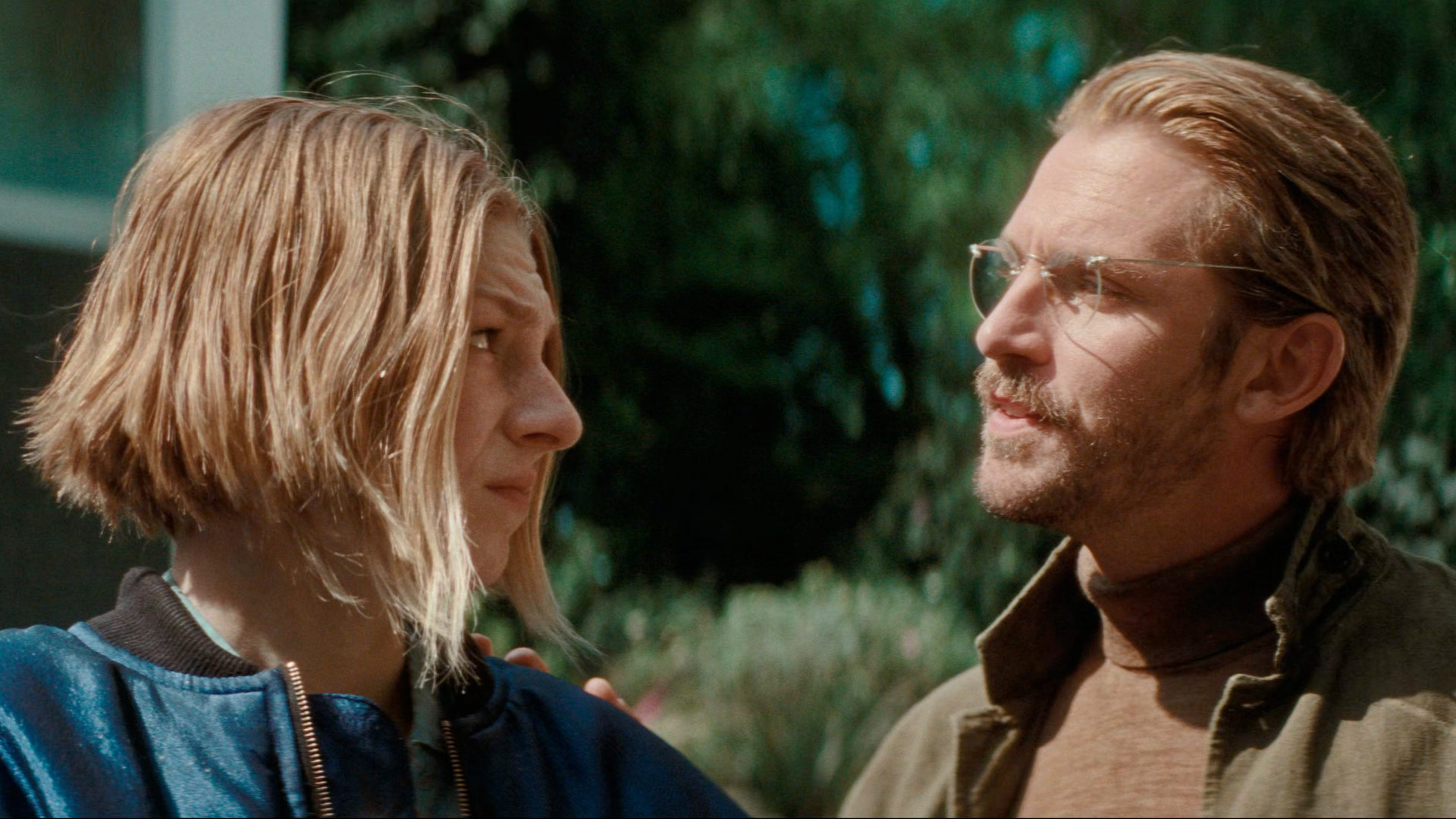
However, he is surprised to see Gretchen (Hunter Schafer) arriving with Luis’s family. Gretchen is the daughter of Luis and his ex-wife Olivia, who had been living with her mother after their divorce until Olivia recently passed away. This unfortunate event forces Gretchen into her father’s care, where she must adjust to her father’s new family. Gretchen is rebellious and refuses to accept Beth as her stepmother or Alma as her stepsister.
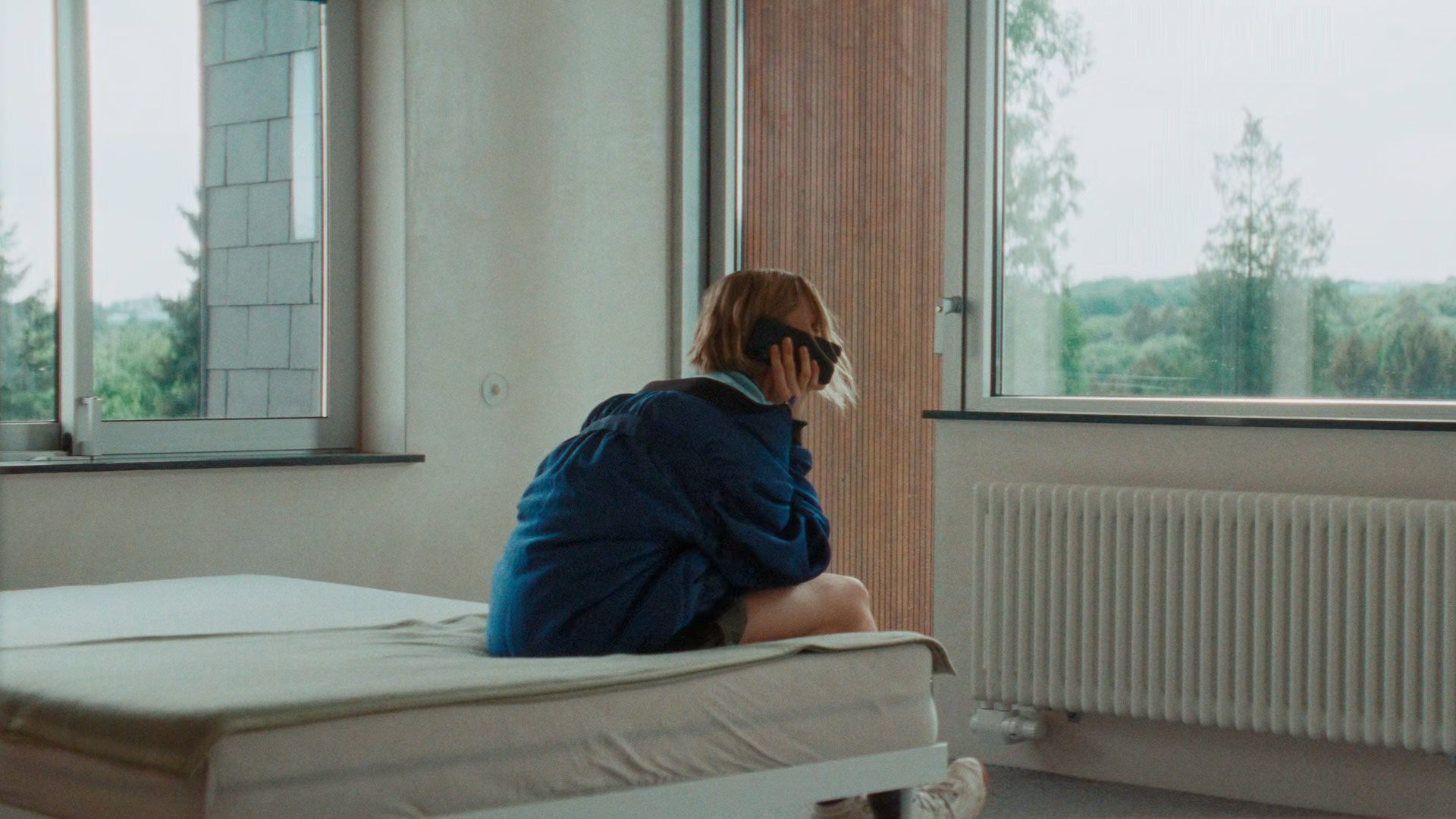
When Gretchen is alone in her room, she calls the Venderkurt residence in the United States, where she used to live with her mother, just to hear her mother’s voice on the answering machine. She leaves a message expressing that she thinks moving here with her dad is a bad idea and that she misses their house. She also mentions that she’s short on money and is determined to return home as soon as she can.
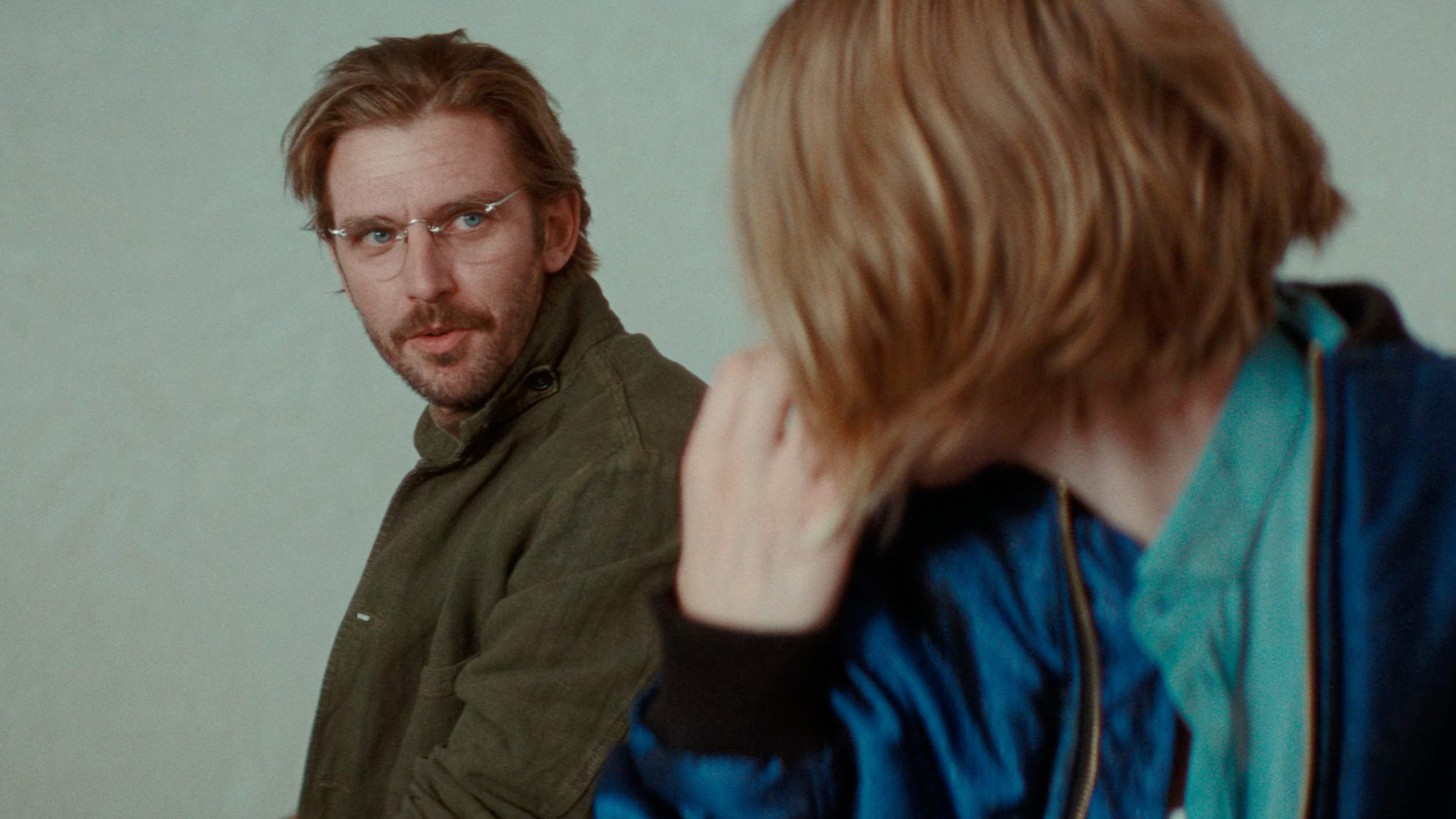
König suggests that Gretchen should work for him at the resort, as there isn’t much to do in the town during the summer. This would give her something to occupy her time while her parents build the new hotel. Initially, Gretchen is hesitant because she doesn’t fully trust König. However, when he offers her a reasonable salary, she quickly accepts the job despite her father’s attempts to dissuade her.
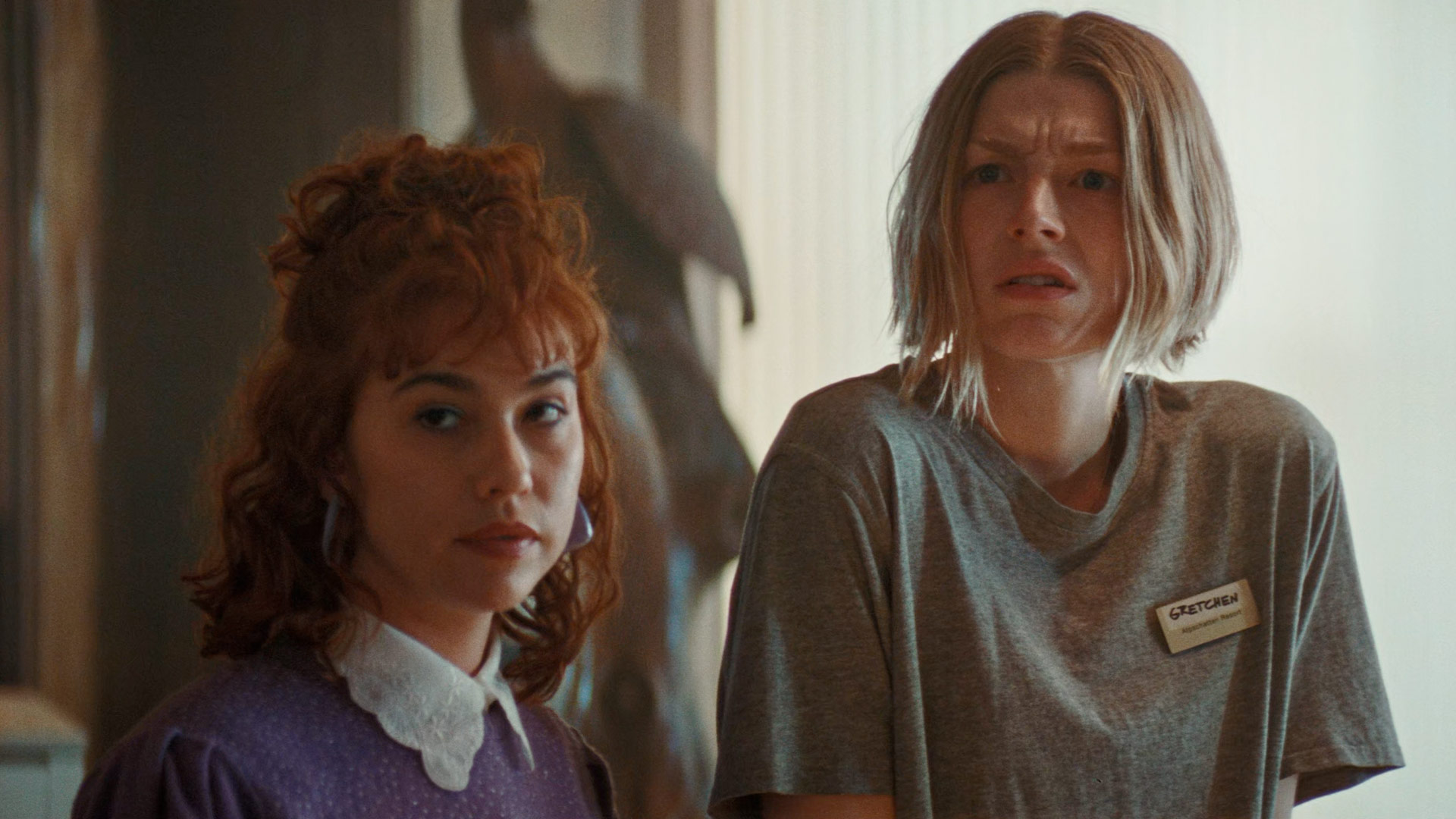
Gretchen poses at the resort reception desk, which is supposed to be an easy job since there aren’t many tourists this time of year. She befriends Beatrix (Greta Fernández), a staff member who teaches her how to handle the guest played by her police officer boyfriend, Erik (Konrad Singer). They witness a female guest at the resort start throwing up, and Beatrix whispers to Gretchen that incidents like this occasionally happen. König arrives and tells Gretchen that he will pick her up in one hour to take her home, insisting that she wait for him instead of riding her bike home alone, mentioning that the roads would be too dark and dangerous.
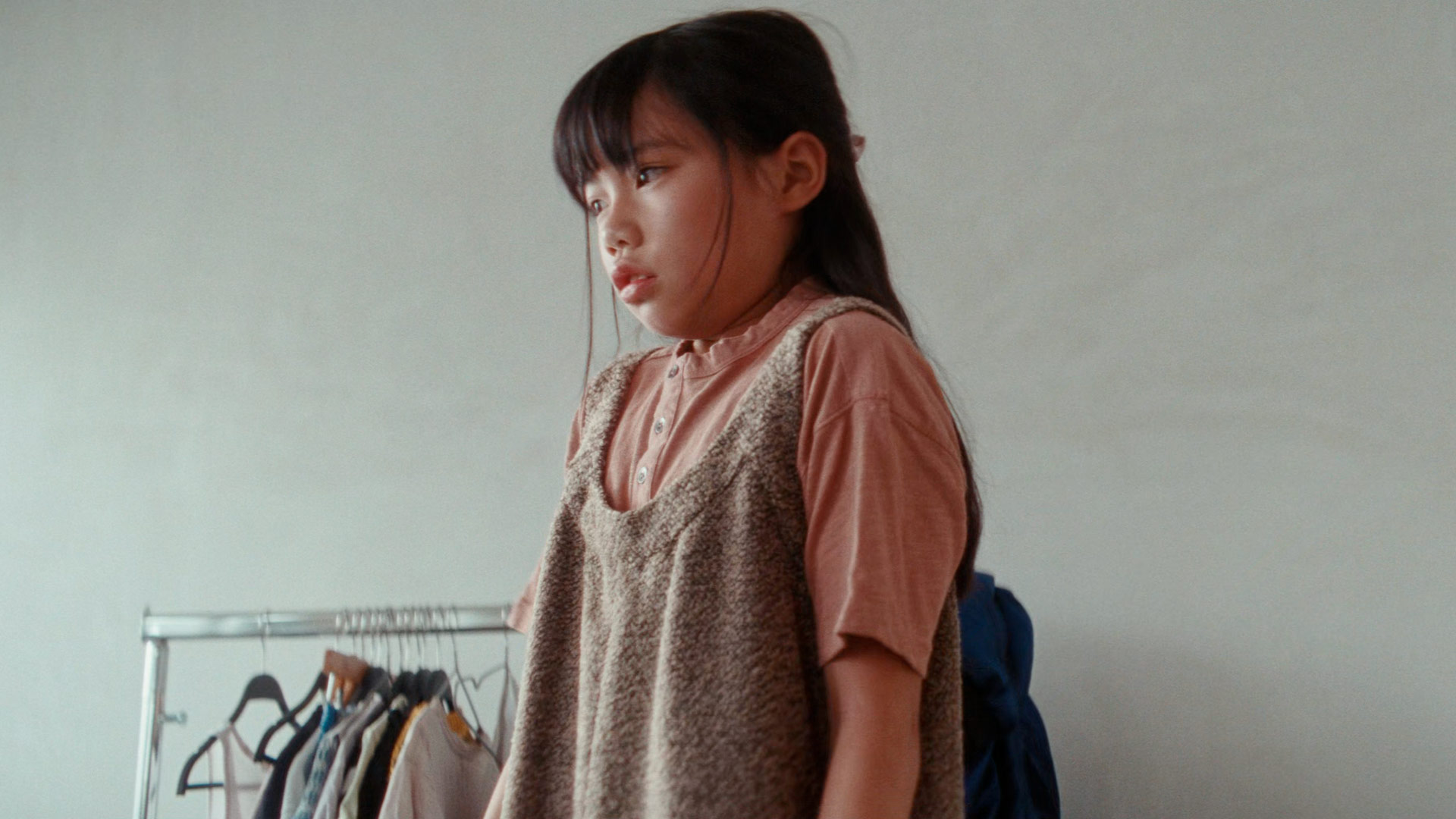
Later, Alma suffers from seizures triggered by a mysterious screeching sound coming from the nearby forest. When Gretchen tries to touch Alma, she experiences a time loop that causes the atmosphere to vibrate. When she finally makes contact with Alma, Alma instinctively reacts by scratching Gretchen’s face.
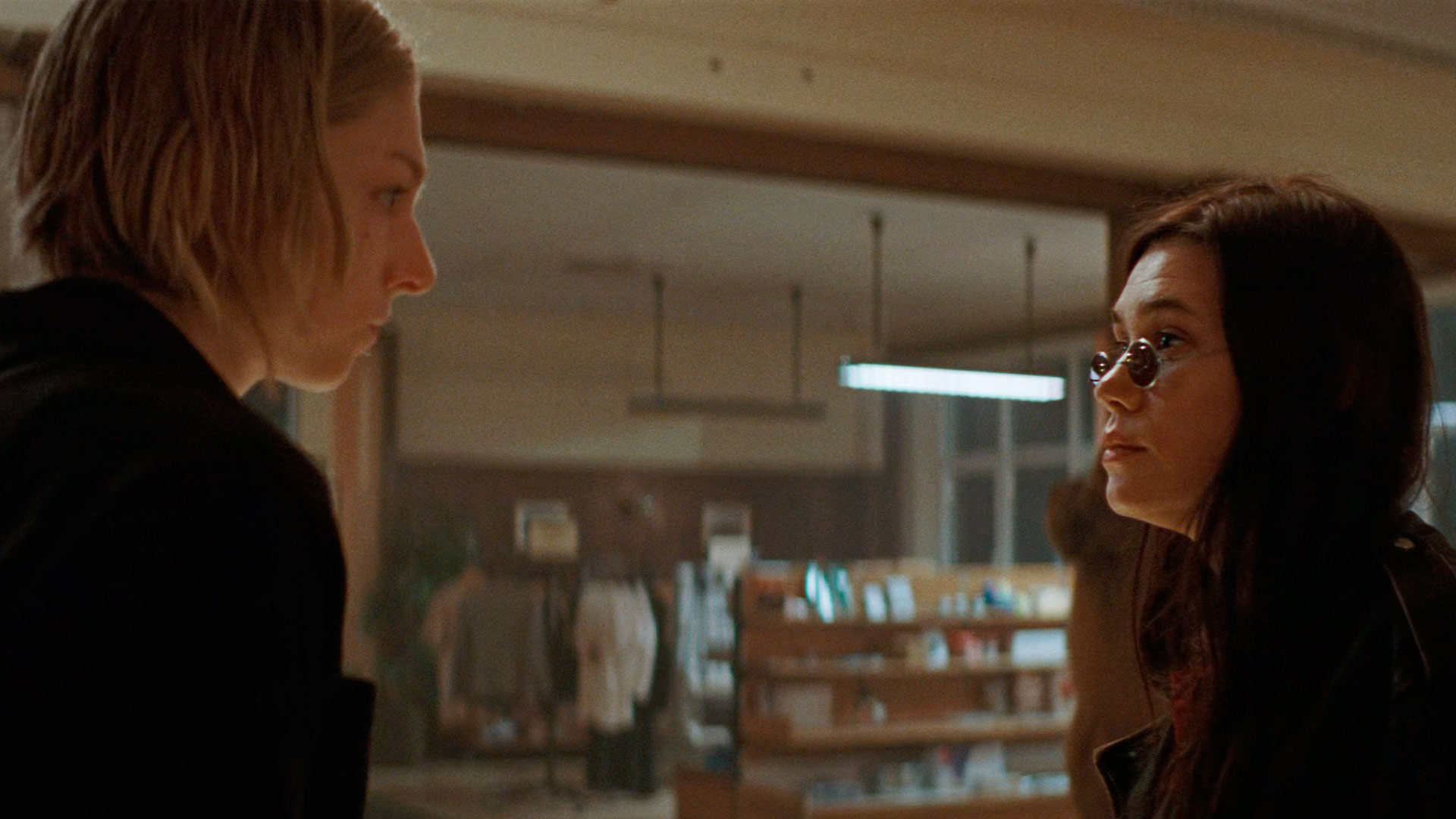
The next day, Gretchen decides to take Beatrix’s evening shift so that Beatrix can go on a date with Erik. Beatrix hands her the master key and reminds her to lock everything up at 10 p.m. sharp, just as she showed her. A woman named Ed (Àstrid Bergès-Frisbey) arrives and rents a room from Gretchen. Suddenly, a confused guest appears and starts throwing up before slowly walking away. Concerned, Ed follows the female guest to check on her. As Gretchen is about to follow Ed, the phone rings. It’s König, who is surprised to learn that Gretchen is still at the resort. He instructs her to lock all the doors and wait for him. However, Gretchen decides to ride her bike home instead. When König arrives at the resort, he finds the doors unlocked and wide open. This scene is particularly strange and absurd. Why did Gretchen leave the door unlocked? And why didn’t she follow Ed to check on the woman or help Ed find her room?
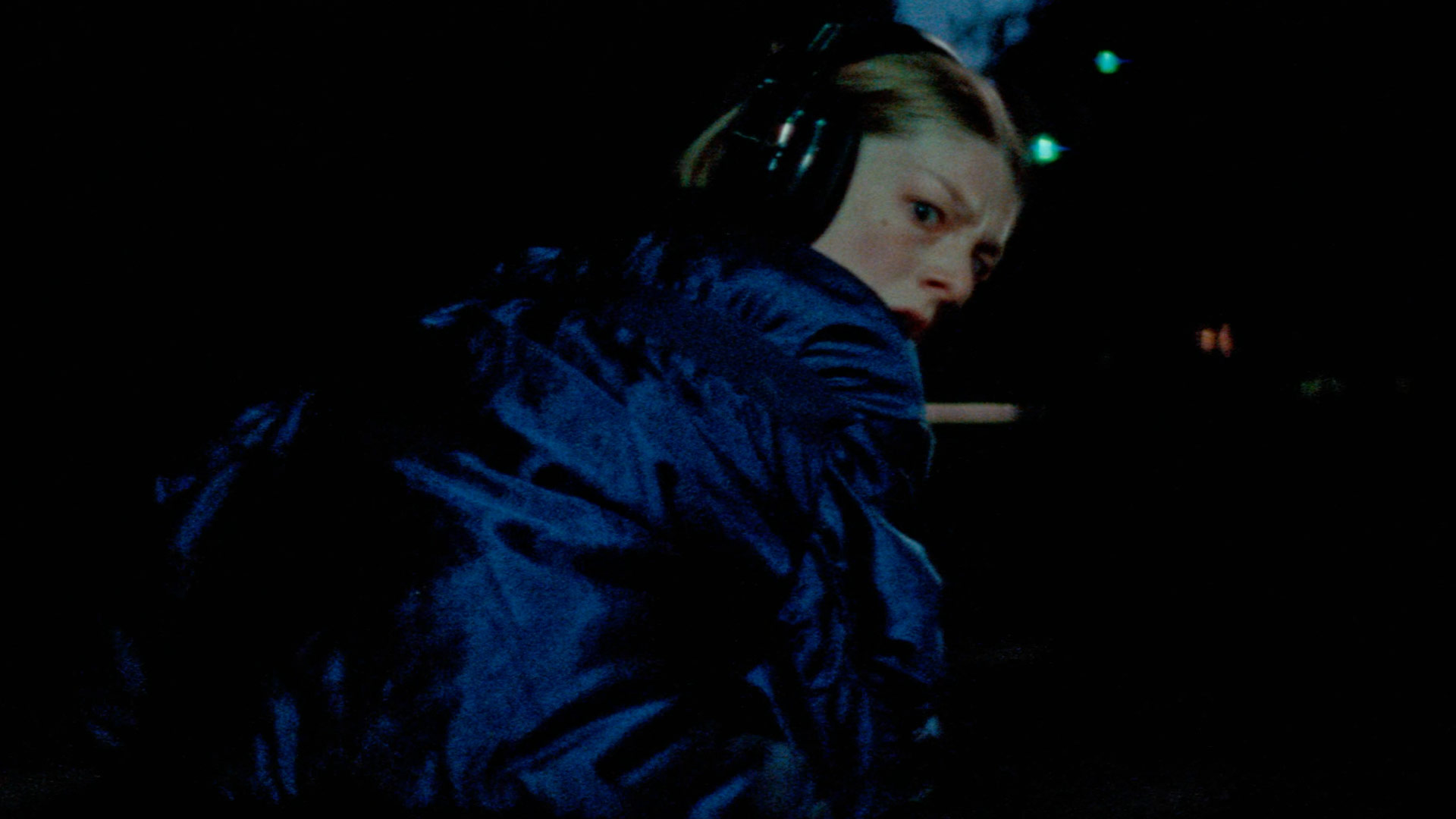
While riding her bike home, Gretchen becomes terrified when she is chased by a creepy hooded woman. She quickly turns toward a nearby local hospital, Dianthus Krankenhaus, only to find that it is closed for the day. Frightened, Gretchen begins banging on the door, hoping someone inside will let her in. In a panic, she presses the Nachtglock (Night Bell) button, and a person on the other side unlocks the outer door for her. Gretchen rushes inside but accidentally bumps her head against the inner glass door, causing it to bleed. By the time the police arrive, the hooded woman has already vanished. Erik takes Gretchen’s statement, but since no one else saw the hooded woman, he concludes that she might be the victim of a prank.
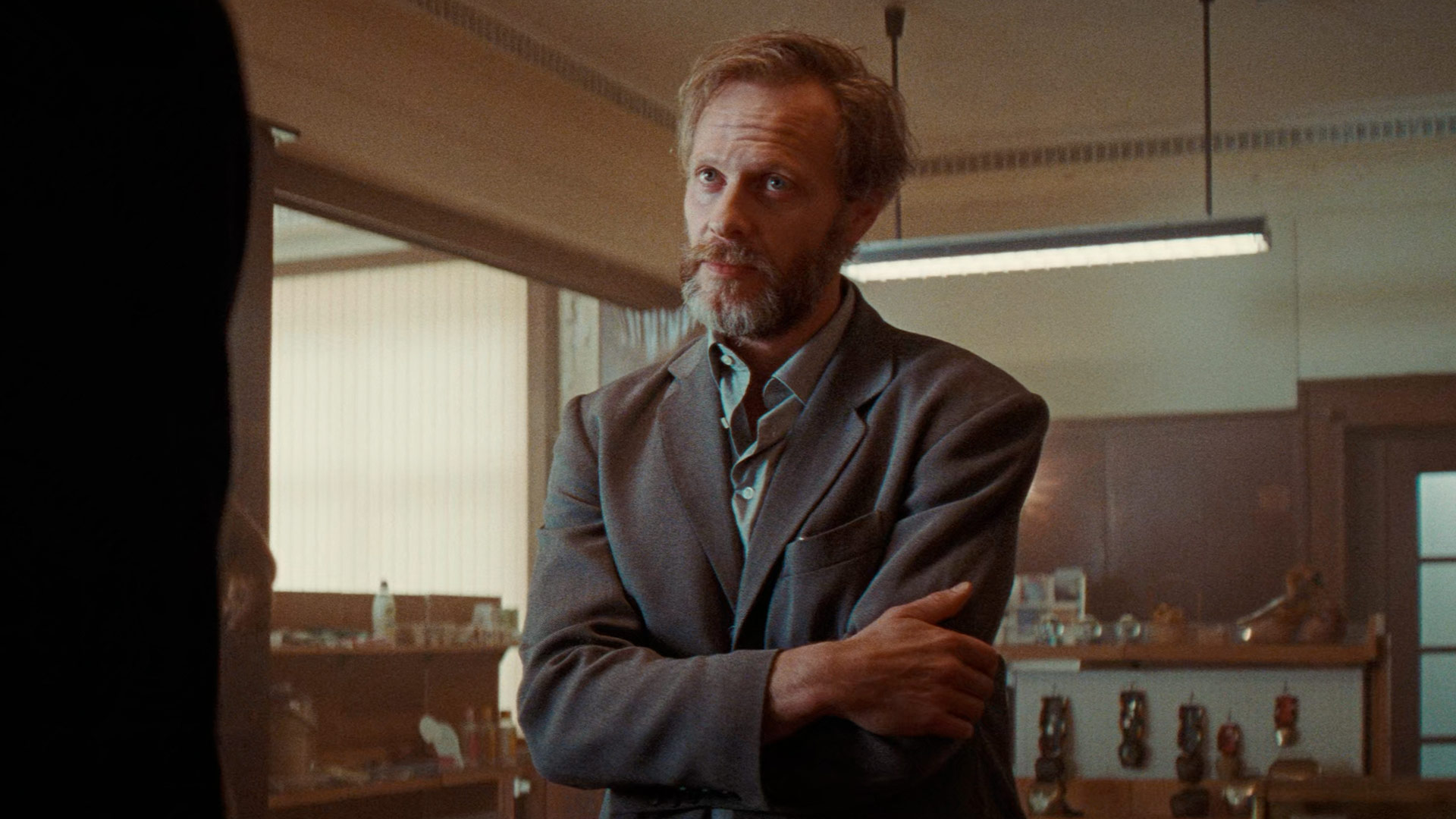
The next day, police investigator Henry Lando (Jan Bluthardt) visits Gretchen at the resort to inquire about the incident. During this time, Gretchen grows closer to Ed. Gretchen steals money from the cash register and runs away with Ed. Later, Gretchen experiences another disturbing time loop before crashing the car. When she regains consciousness, she becomes terrified as the hooded woman tries to reach her. Fortunately, Henry arrives just in time to save her. Henry reveals that he also saw the woman and needs Gretchen’s help to find her, as she is wanted for murder. He expects the woman to come after Gretchen again and promises that if they find her, he will personally take Gretchen wherever she wants to go.
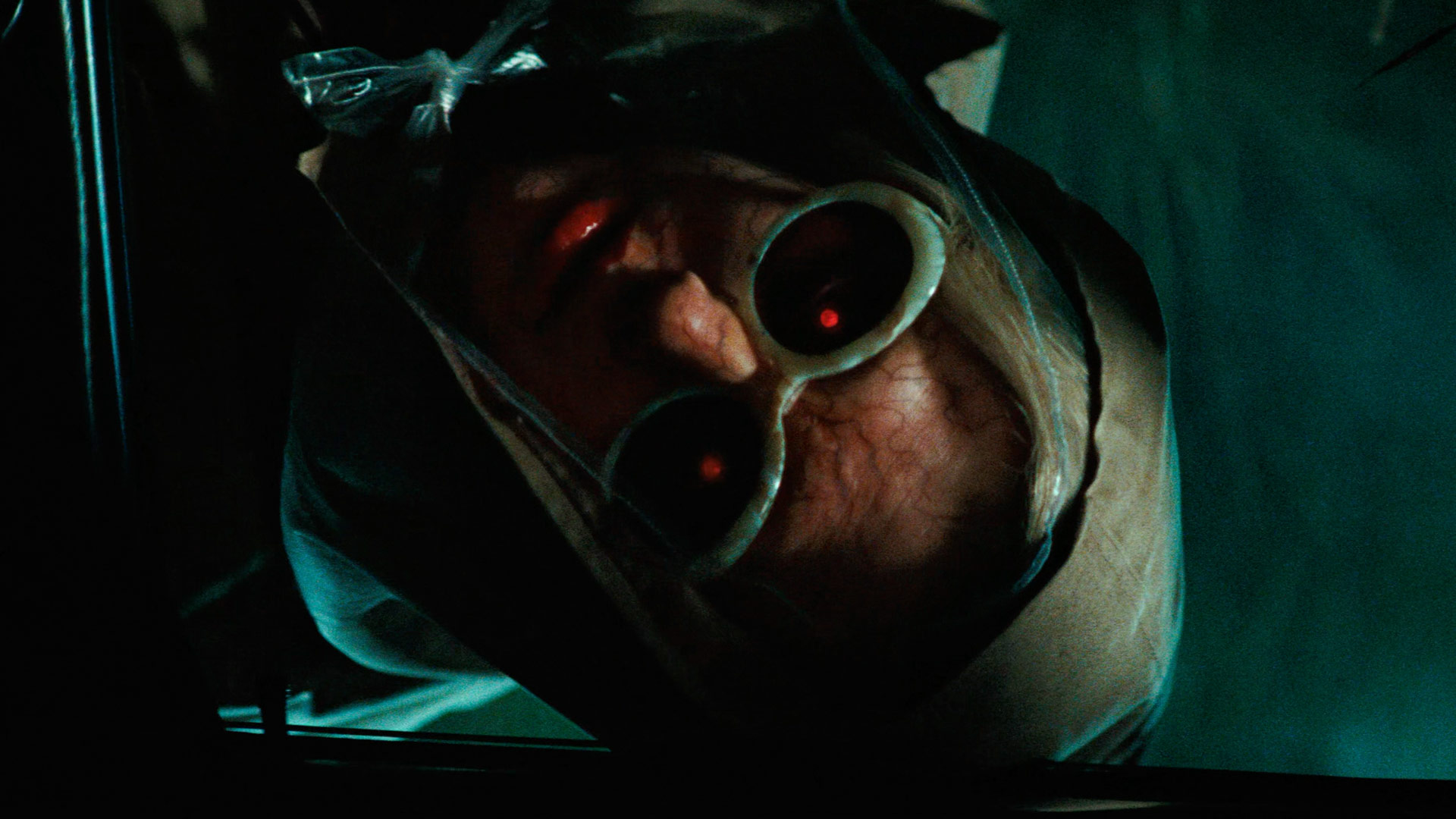
Written and directed by German filmmaker Tilman Singer, CUCKOO is a fantasy horror film with an intriguing premise based on cuckoo mythology and their unique behaviors, particularly brood parasitism in which they lay eggs in the nests of other birds.
Brood parasitism is a reproductive strategy where a female cuckoo lays her eggs in the nests of other bird species, leaving the unsuspecting host to incubate and raise the cuckoo chicks. This behavior allows cuckoos to conserve energy and resources, as they do not have to care for their young. The cuckoo eggs often mimic the appearance of the host’s eggs, which increases the likelihood that the host will accept them. Once hatched, cuckoo chicks may outcompete the host’s chicks for food, sometimes even pushing them out of the nest. The cuckoo’s brood parasitism has led to its association with cuckoldry. In German folklore, this aspect has been woven into idiomatic expressions and social commentary about infidelity and deception. The term “cuckold” itself derives from this behavior, symbolizing a husband whose wife has been unfaithful.
I enjoy the film’s slow-burn quality, particularly in the first half, which presents us with ambiguous scenes, strange behaviors, and moments of absurdity without clear explanations.
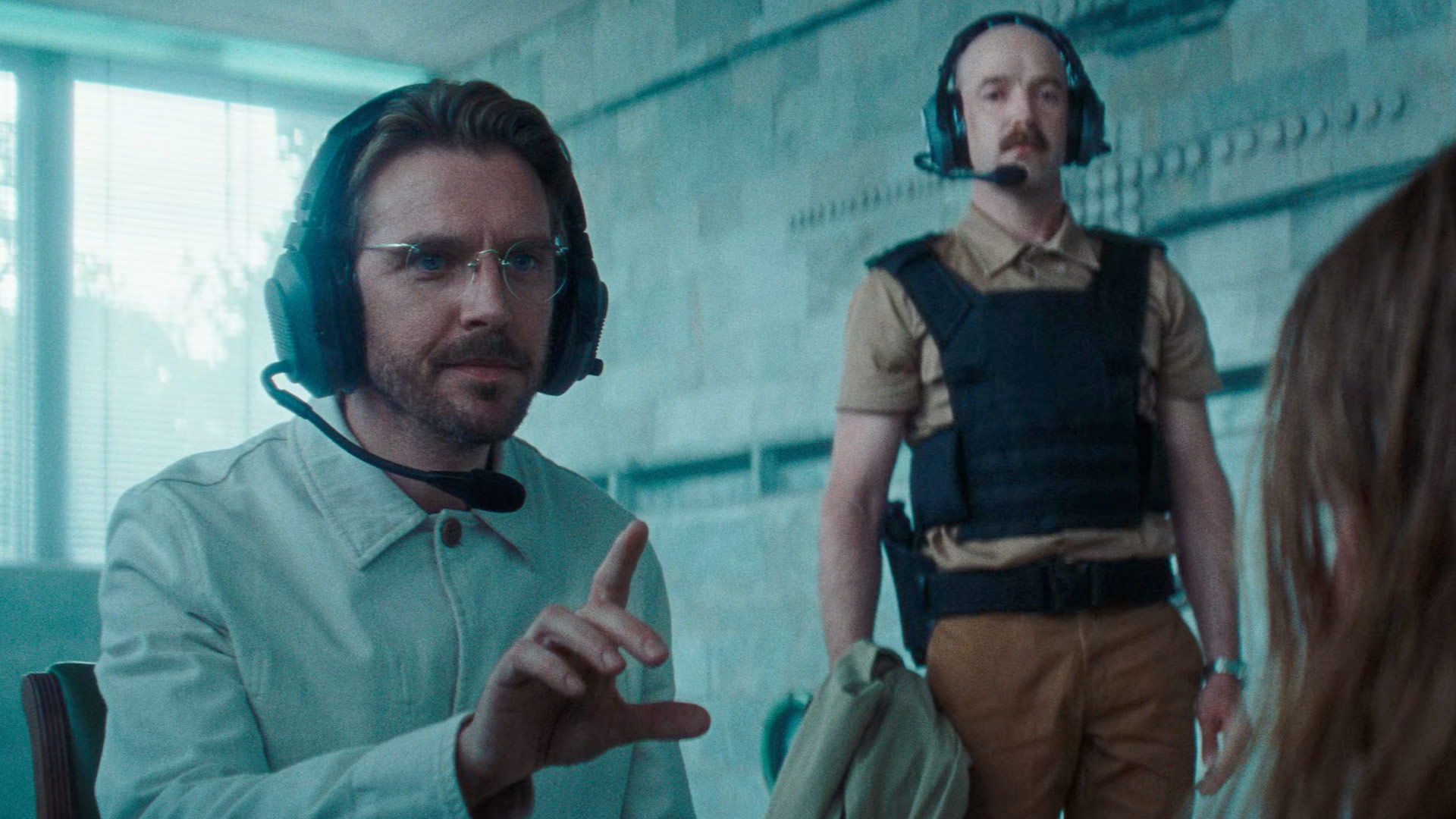
Dan Stevens delivers a stellar performance as Herr König, complete with a hilarious German accent. He perfectly embodies this memorable role, stealing the spotlight every time he appears on screen.
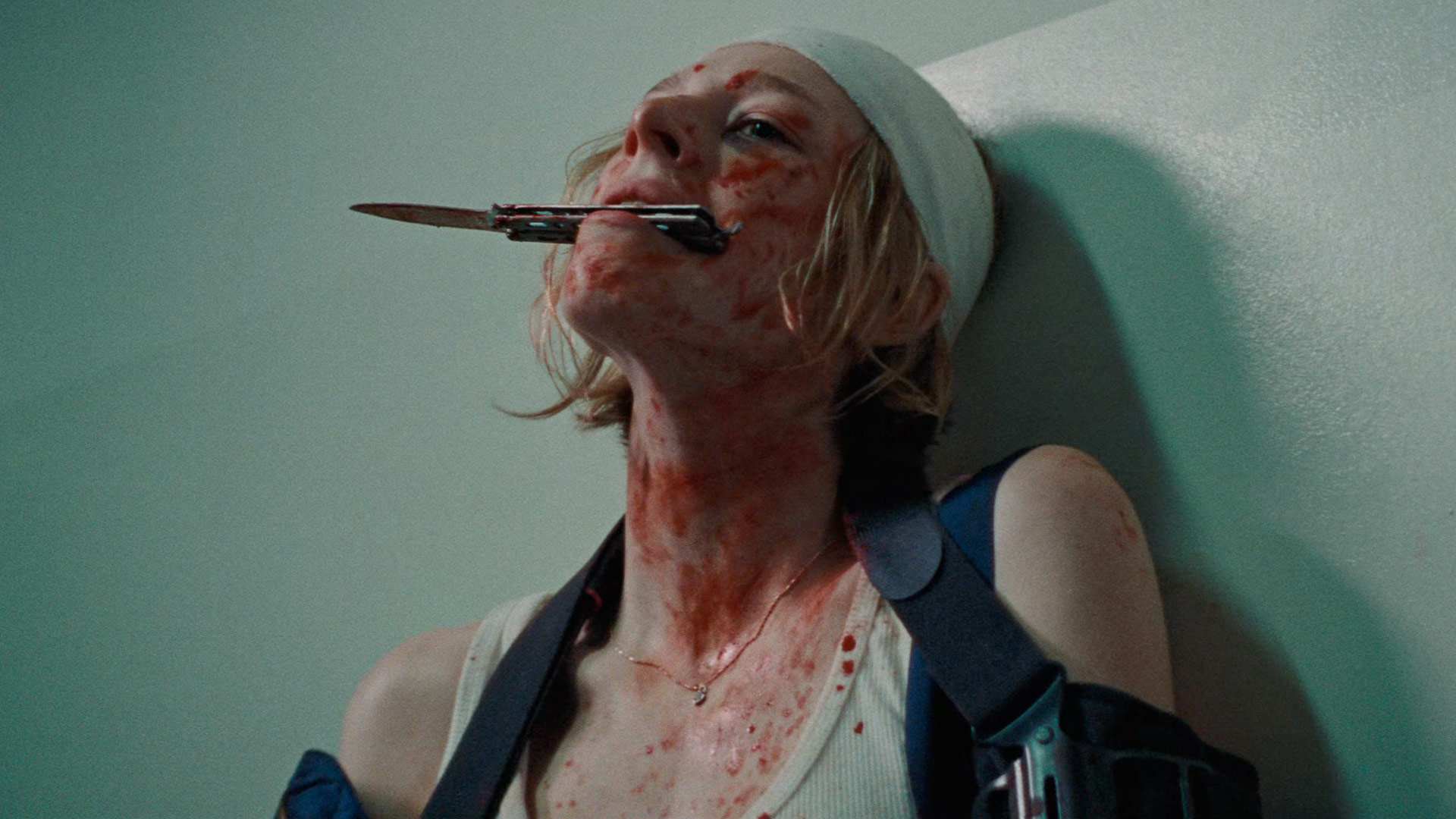
Hunter Schafer also gives an intriguing performance as a troubled young woman struggling to find her place. She seems to be the only one who senses that something is wrong with this place. However, her character suffers from a weak script, which may or may not be intentional. The screenplay oddly makes her character unlikeable, making it difficult for viewers to root for her as every decision she makes leads to more troubles and injuries.
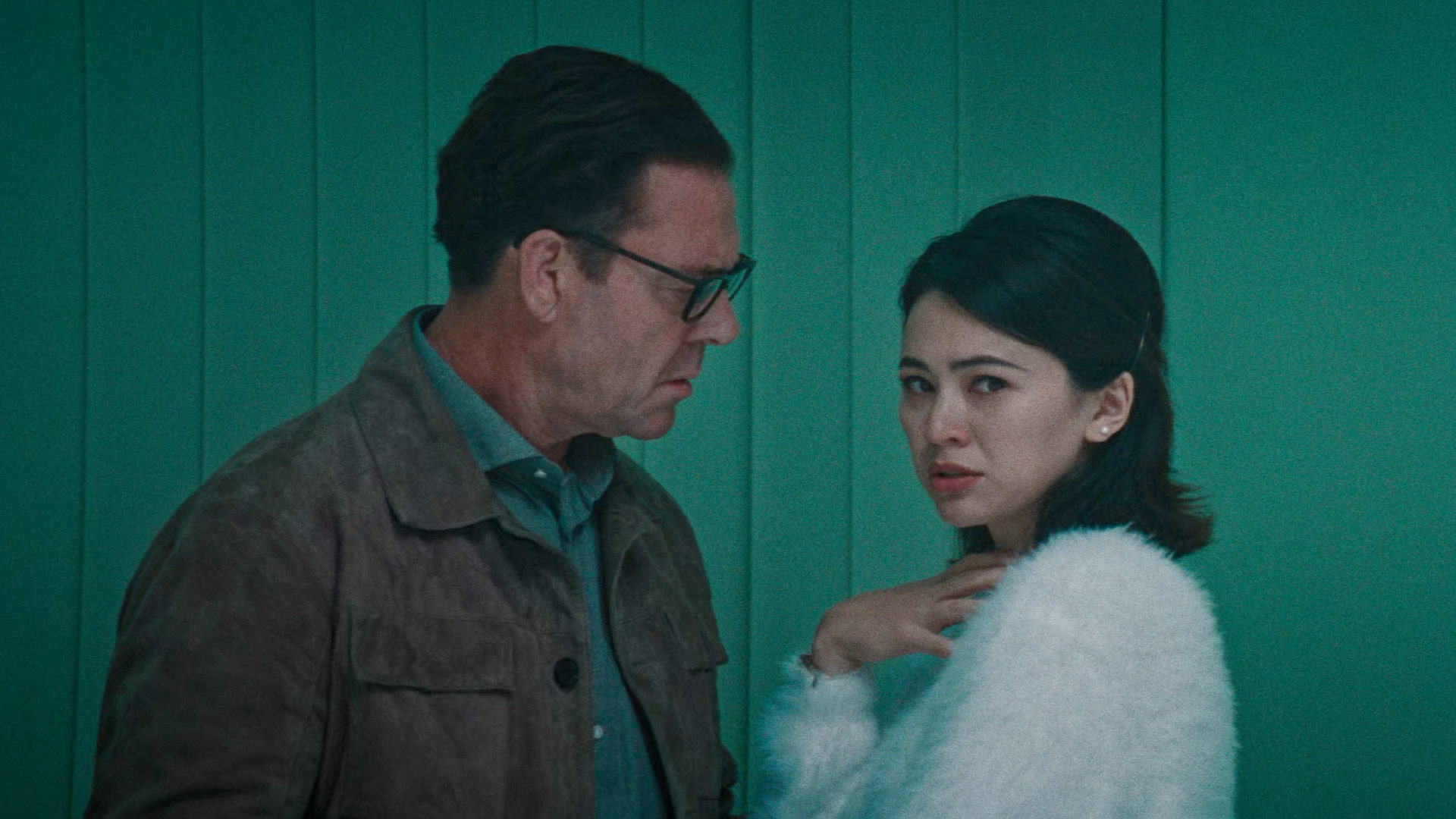
The film is supposed to make us care about Gretchen and her mute stepsister Alma, but it spends the first 40 minutes focusing on Gretchen’s reckless, inconsiderate, and illogical behaviors. While I understand that Gretchen is still reeling from the loss of her beloved mother — often making phone calls to their house just to hear her mother’s voice on the answering machine and confiding her troubled thoughts to it, fully aware that her mother is no longer in this world — this focus detracts from the development of their relationship.
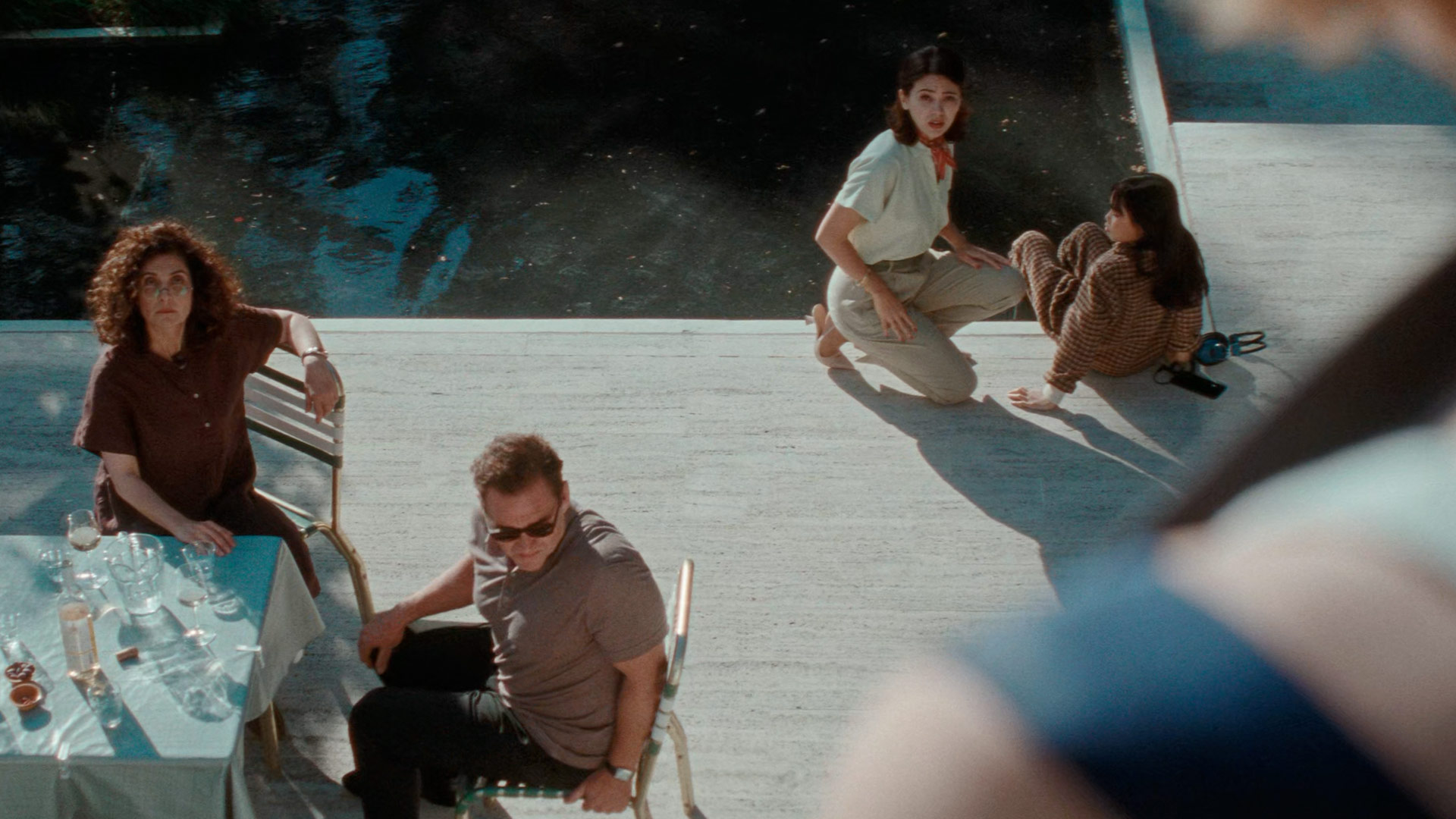
There is almost no interaction between Gretchen and Alma; in fact, Gretchen sometimes says that Alma isn’t her sister. This lack of connection makes it difficult to feel any bond or love between them. Then, in the second half of the film, when Gretchen learns the truth about Alma, she suddenly becomes protective of her stepsister. However, this abrupt change in character feels illogical and unconvincing.
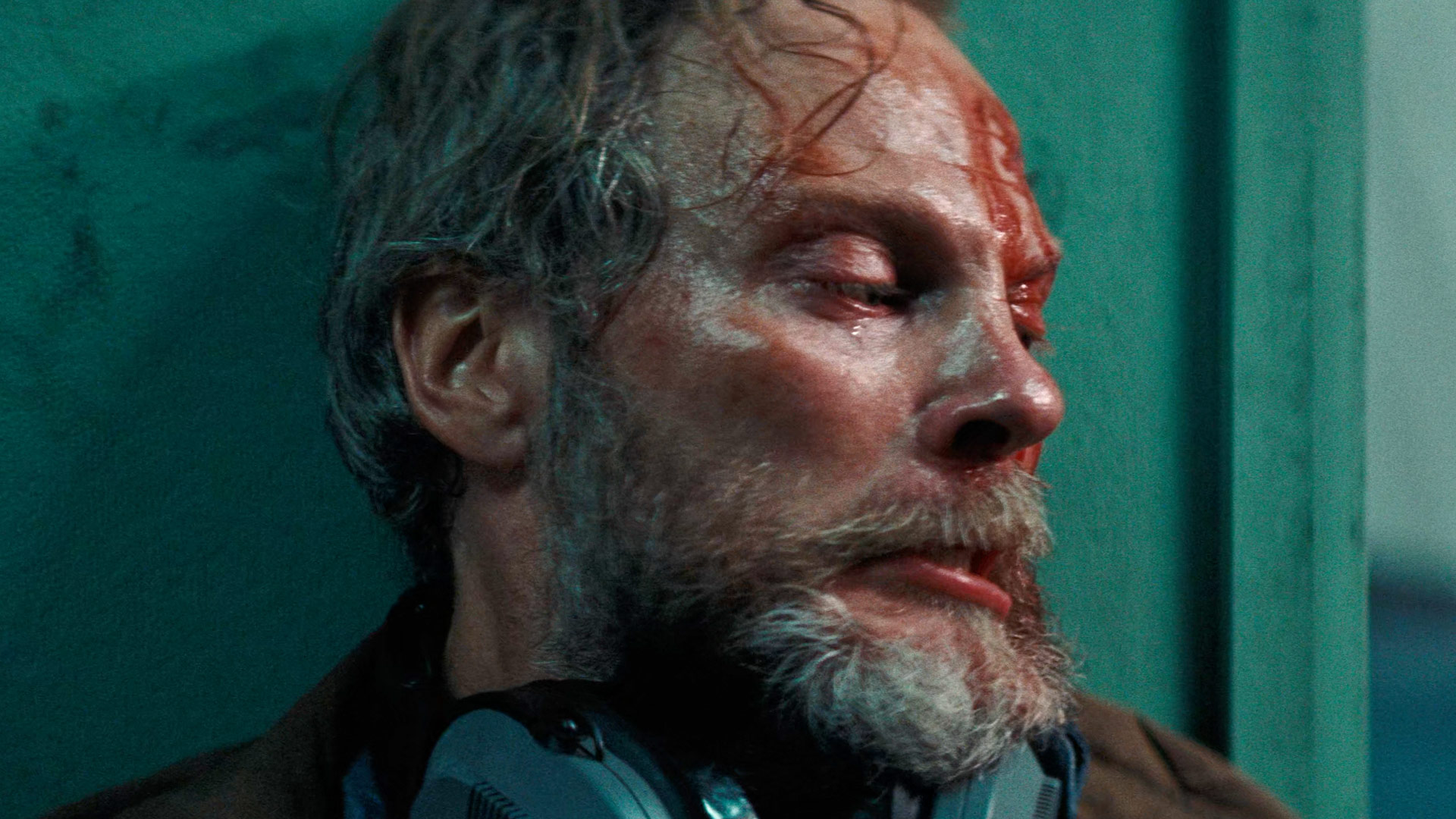
The final act is erratic yet entertaining as Herr König decides to tie up loose ends by eliminating everyone who knows about his unethical experiment, including those who helped him from the beginning. However, the filmmaker seems hesitant to go full bonkers and takes the narrative less seriously.
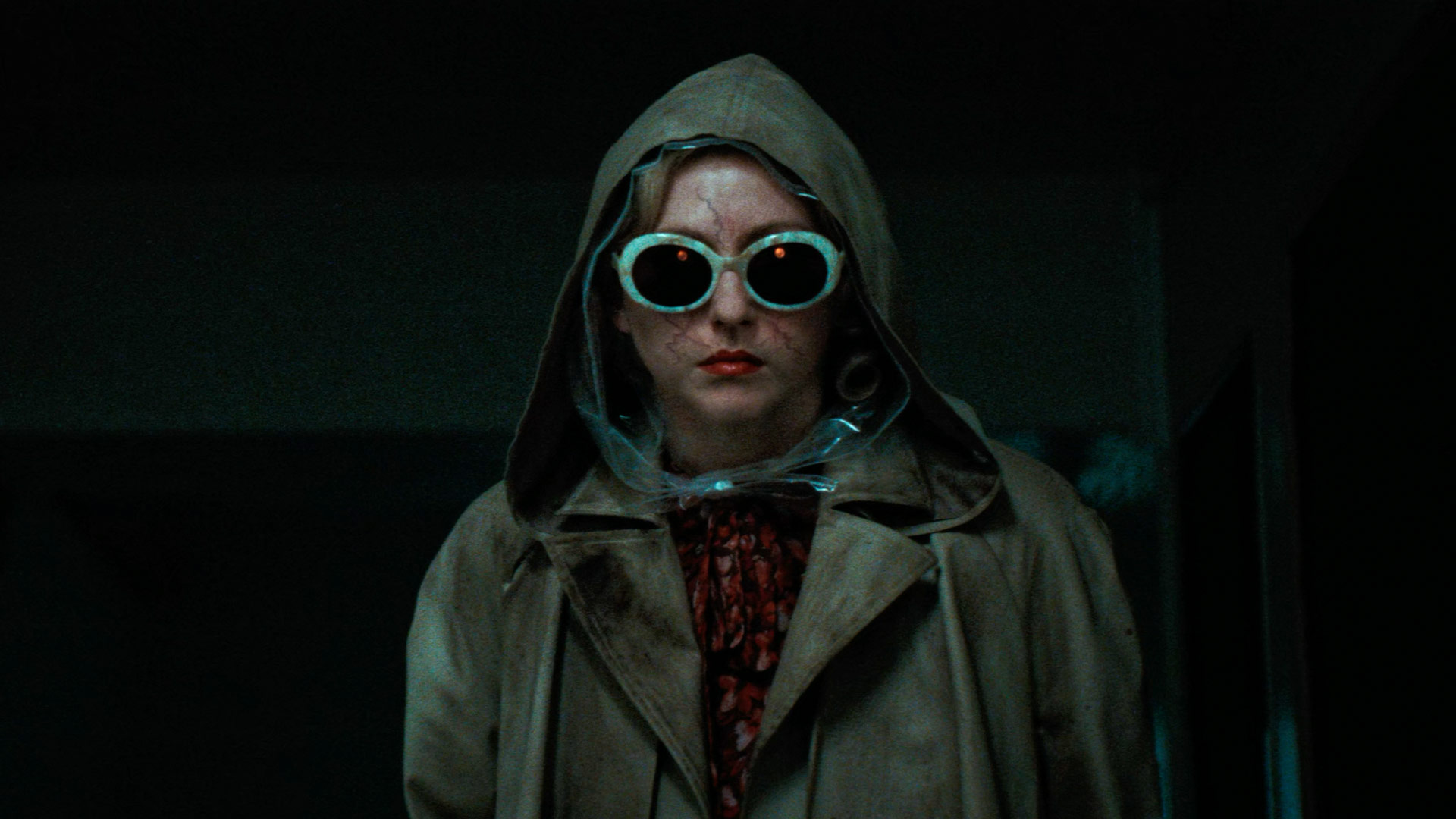
Ultimately, the film fails to become either a cult classic or a memorable horror film. The open-ended conclusion suggests an opportunity for a sequel. But by that point, I no longer care.
I wish the film had explored the special abilities of the hybrid homo-cuculidae by incorporating more mythical or fantastical elements. The film only vaguely explains that it can use sound or some kind of vibration to make victim lose consciousness. However, there are several scenes that depict the victims caught in a time loop, which feels like an odd way to showcase these abilities.

CUCKOO premiered at Internationale Filmfestspiele Berlin on 16 February 2024. The film was theatrically released in the United States on 9 August, and in Germany on 29 August.




